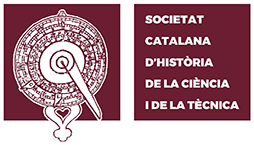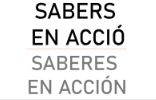Col·loquis de la SCHCT (2020 – 2021)
Cicle: Global History of Science Seminar
“The global history of science: what it is and what it isn’t”
Ponent: Lissa Roberts (University of Twente)
Dijous 17 de desembre de 2020, 18.30h
Professor Lissa L. Roberts (Editor-in-Chief, History of Science)
Abstract: This presentation will discuss some of the fundamental issues that inform the currently popular marriage between global history and the history of science. Are global history and the history of globalisation synonymous? What are the virtues and vices of comparative history? What do we miss when we focus on ‘ways of knowing’? Should non-humans be considered as historical actors? What might a ‘labor history of science’ look like? The purpose of this presentation is not to make dictatorial claims regarding how to define this burgeoning field, but to stimulate a conversation that participants will find provocative and productive.
Lissa L. Roberts is editor-in-chief of History of Science and emeritus professor of Long-Term Development of Science and Technology at the University of Twente. A firm believer in collaborative research, she has (co-) edited numerous volumes and special issues, including “Historicizing Research Integrity and Fraud” (special issue of History of Science, 2020); Compound Histories: Materials, Governance and Production, 1760–1840 (2017); “Chemistry and Global History” (special issue of History of Science, 2016); “Oeconomies of the Eighteenth Century” (special issue of History and Technology, 2014); The Brokered World: Go-betweens and Global Intelligence, 1770–1820 (2009) and The Mindful Hand: Inquiry and Invention from the late Renaissance to Early Industrialisation (2007).
Coordinadors del cicle: Oliver Hochadel (IMF-CSIC), Daniele Cozzoli (UPF) i Agustí Nieto-Galan (UAB).
El GHOSS consistirà en seminaris impartits (de manera virtual o presencial) per destacats experts en història global, per investigadors rellevants que han treballat en història global de la ciència, i es complementa amb un “reading group” d’abast més local.


